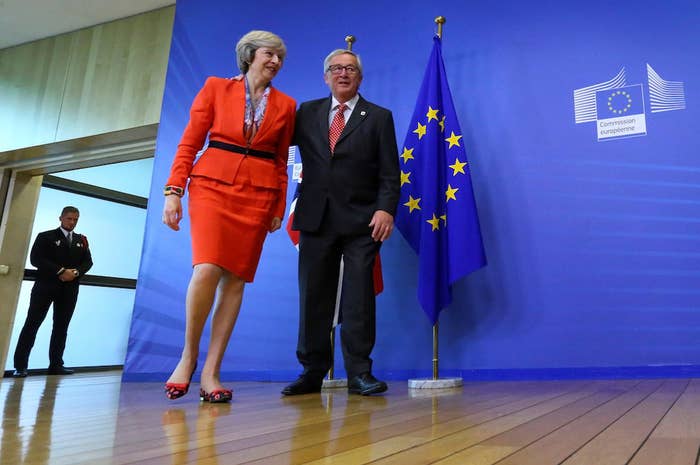
BRUSSELS – British prime minister Theresa May has said that she wants the UK to continue to trade "freely" in goods and services with the European Union after Britain leaves the EU.
Speaking at a press conference at the end of her first European Council since becoming prime minister, May said she was confident she could get a good deal for the UK.
She said the UK was discussing future trade relationships with non-EU countries, but insisted that this would not undermine the EU’s trade agenda, and Britain was not in competition with the rest of the bloc.
While it remains a member of the EU, the UK cannot formally negotiate and conclude trade deals, and the government has been clear that it will continue to support the EU’s efforts to negotiate free trade agreements, including with the US and Canada.
During the press conference, May also said that her aim was to “cement Britain as a close partner of the EU”, even after Brexit, and hoped for a "mature, cooperative relationship" with the other 27 states, including on matters such as law enforcement and counterterrorism.
May, speaking ahead of a working lunch with European Commission president Jean-Claude Juncker, said the UK would face similar challenges to EU states and share values after Brexit.
"I recognise the scale of the challenge ahead," she said. "I am sure there will be difficult moments. It will require some give and take.
"But I firmly believe that if we approach this in a constructive spirit – as I am – then we can deliver a smooth departure and build a powerful new relationship that works both for the UK and for the countries of the EU – looking for opportunities, not problems."
That constructive spirit is "in British interests", May said. "And it is in the interests of all of our European partners too."
May was asked whether the EU's difficulties in agreeing a trade deal with Canada, as a result of the opposition of one Belgian region, would affect the chances of a successful Brexit deal.
She replied: "Obviously we have got negotiations ahead... those negotiations will take time, as I say, there will be some difficult moments... but I'm optimistic that we can achieve a deal that is right for the UK because I actually think the deal that is right for the UK will also be right for the European Union."
The prime minister made clear that until the UK actually leaves the EU it remains a fully fledged member with full rights and obligations – a point she also raised on Thursday when May told the leaders of the EU’s 27 other member states that they could not expect her government to rubber-stamp decisions they take without Britain’s involvement while it remains a member.
The prime minister raised concerns about meetings the 27 were holding without Britain, such as last month’s summit in Bratislava, which could affect all 28 member states.

On Russia's military involvement in Syria, one of the main topics on the summit agenda, May said that she, along with German chancellor Angela Merkel and French president Francois Hollande, had argued for a "robust and united" message to stop the bombing of Aleppo and made clear the EU would "consider all options if the atrocities continue". This had been agreed, she said.
But the EU leaders did not explicitly threaten Russia with sanctions if the bombing continued. A specific reference to sanctions had appeared in the draft communique of the summit, but was removed from the final, released version as the leaders could not come to a unanimous view.
